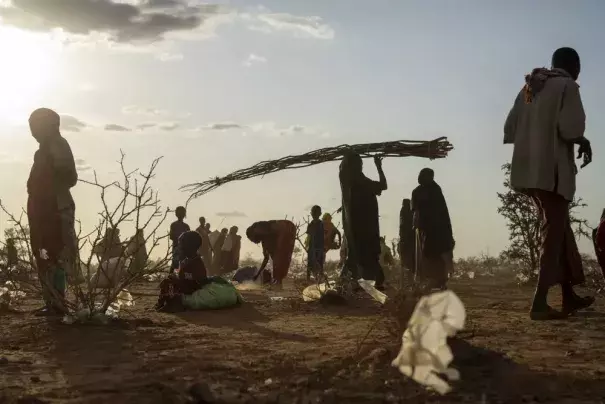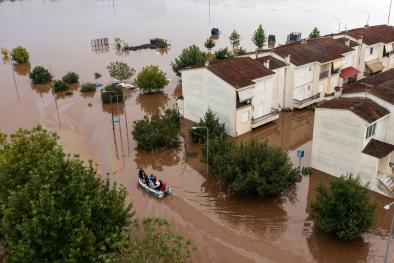Catastrophic East Africa Drought Crisis Impossible Without Climate Change

Climate change makes droughts like that currently devastating East Africa at least 100 times more likely and the catastrophic humanitarian crisis there would not have happened without climate change, a new report from World Weather Attribution finds. The results highlight the devastating inequity of pollution released by the world's wealthiest nations causing famine (in all but name) so dire in Somalia that mothers are forced to poison their children with detergent in the hopes they can receive food in a medical center, or renting out their children to other beggars because people begging with children are given more than those begging alone. Climate change, mainly caused by the extraction and combustion of fossil fuels has heated global temperatures an average of 1.2°C (2.2°F) above preindustrial averages. The international team of scientists assessed myriad factors — including hotter temperatures, increased evaporation, and La Niña's impacts on rainy seasons — and determined the contributing factors would not have led to drought at all in a 1.2°C cooler world. The Horn of Africa is responsible for essentially no climate pollution, and in large part because it has no fossil fuels to burn, is largely shut out from international climate aid. “I have six children, and this is the only way I can get food,” one mother, Maceey Shute, told The New Humanitarian. “I poison my children in order to survive.”
(Drought attribution: Washington Post $, AP, New York Times $, The Guardian, Bloomberg $, FT $, France24, Axios, Reuters, Carbon Brief, CNN, Inside Climate News, Al Jazeera; Crisis: The New Humanitarian; Climate Signals background: Drought)
To receive climate stories like this in your inbox daily click here to sign up for the Hot News Newsletter from Climate Nexus:
Related Content



